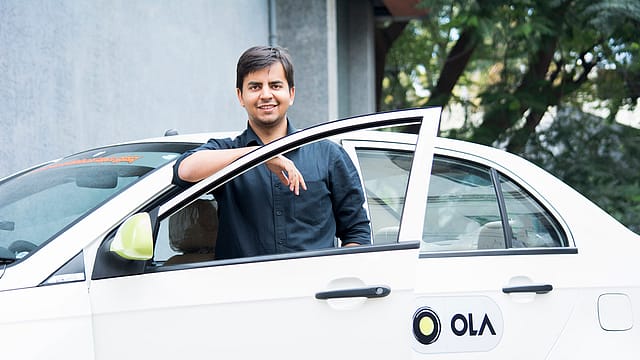India’s EV space heats up with Ola’s entry
ADVERTISEMENT

Ride hailing platform Ola is looking to aggressively expand into the electric vehicles (EV) space in India. The company, on Thursday, announced that it will partner with the U.K.-based ABB’s robotics and automation solutions for its scooter factory in Hosur, Tamil Nadu. This factory, touted to be one of the largest in the world for electric two-wheelers, will roll out Ola’s electric scooter, which is expected to launch in the next few months and is likely to be priced at ₹90,000.
The company said that with an initial annual capacity of 2 million units, this factory will help create 10,000 jobs and would also serve as its global manufacturing hub for India and international markets spanning across Europe, the U.K., Latin America, Australia, and New Zealand.
“We are bringing in global expertise and stitching up partnerships that will help us build our factory in record speed and roll out the first of our electric scooters in the coming months. ABB’s solutions will be riding on Ola’s own proprietary A.I. engine and tech stack embedded in our scooter mega factory,” says Bhavish Aggarwal, chairman and group CEO, Ola.
According to this arrangement, Ola will utilise ABB’s automation solutions in its factory’s key manufacturing process lines—including its painting and welding lines—while the U.K firm’s robots will be deployed extensively for the battery and motor assembly lines. The company pointed out that ABB’s robotics and automation solutions will ensure remote digital connectivity and monitoring of the robots. The factory will have around 5,000 robots and automated guided vehicles in use once it is operational at its full capacity.
“ABB’s sustainable robotics automation solutions will complement the vision to build this mega factory to further the EV journey of our country,” says Sanjeev Sharma, managing director, ABB India and South Asia. He adds that increased automation and robotics will make shop floors safer and more productive. “[It] will fast-track India’s transition to one of the leading agile, self-reliant, and high-tech manufacturing economies of the world,” says Sharma.
In 2019, Ola had spun off its EV business into a separate entity. According to reports, Ola Electric is looking to raise $300 million from investors and the funds might go into technology enhancement, battery-management software, brand building, distribution, etc. The company is backed by Pawan Munjal Family Trust, Kia Motors, Hyundai Motor Company, SoftBank, Tata Sons Private Limited, Tiger Global Management, and Matrix Partners India, and has raised nearly $307 million till date.
In January, the company had announced its partnership with Siemens to build India’s most advanced EV manufacturing facility in Tamil Nadu, and had also signed a ₹2,400-crore deal with the Tamil Nadu government to set up its first factory in the state. Before this, in May last year, the company had acquired Amsterdam-based electric mobility firm Etergo BV for an undisclosed amount.
Ola Electric competes with Hero Motorcorp-backed Ather Energy, Bajaj Auto, TVS, Okinawa Scooters, and others.
The EV space, albeit still nascent, is fast heating up. Ather Energy’s new scooter plant, too, recently came up in Hosur. Ather Energy had said earlier this month that the Hosur plant was operational and had started production with an investment of more than ₹630 crore. The EV startup has also signed an agreement with the Tamil Nadu government to invest around ₹635 crore in the plant that is expected to create around 4,000 jobs in the next five years.
Ather Energy’s CEO, Tarun Mehta, has said that the company is rapidly scaling up and would need to expand its production capacity exponentially in order to satiate the growing demand for EV vehicles. “Ather is rapidly scaling up and we need to expand our production capacity to meet the growing demand. The new unit will help us meet the demand for the next few years across the country. Tamil Nadu has been a hub for automobile manufacturing, and it has been working closely with us in its efforts to build an EV ecosystem,” he says.
The EV makers have just started scratching the surface in the world’s largest market for two-wheelers and for players like Ola Electric, there are still miles to go before resting on their laurels.